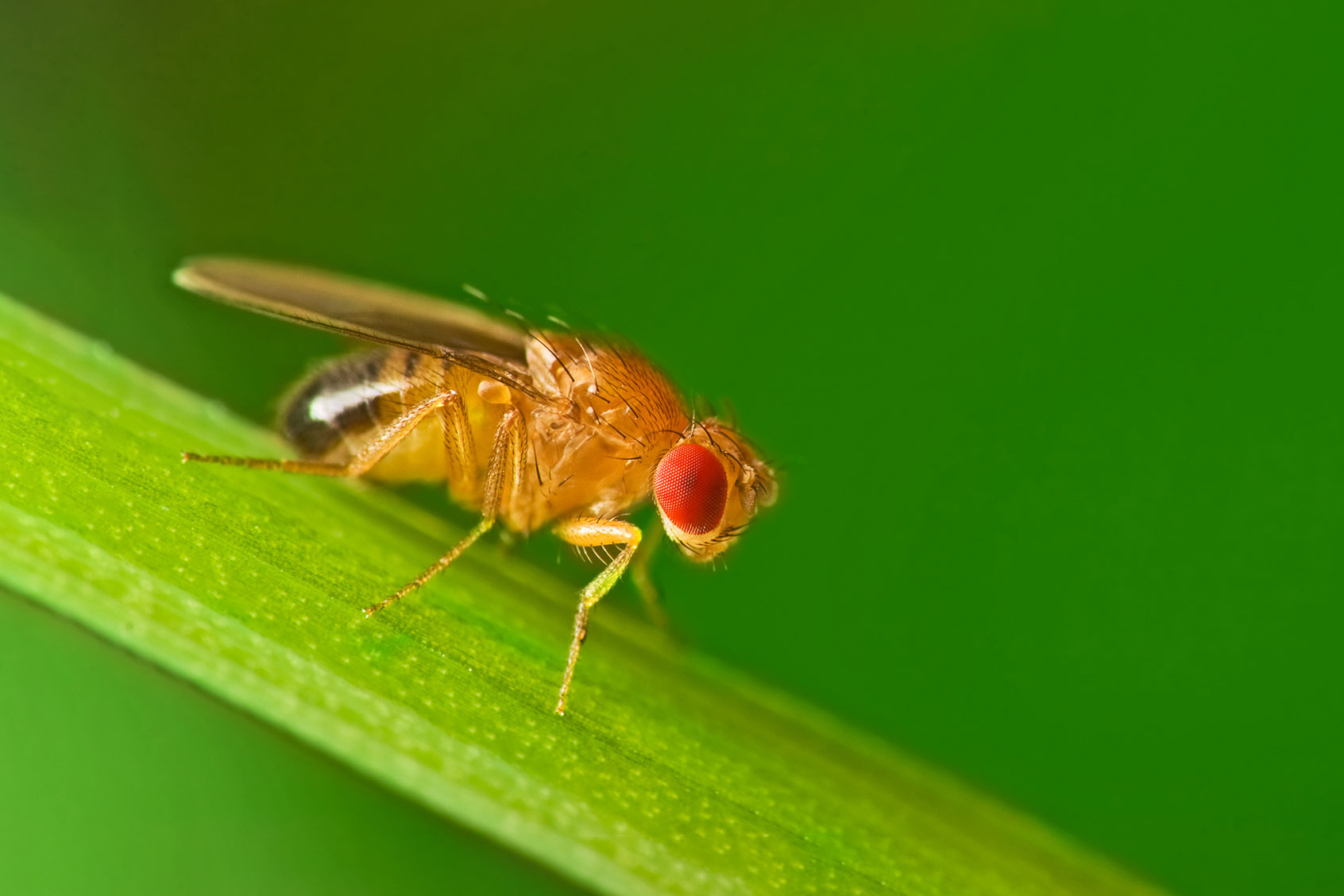For the first time, scientists have induced facultative parthenogenesis, a form of asexual reproduction, in an animal that usually reproduces sexually.
Commonly referred to as a “virgin birth,” most animals who reproduce this way are small invertebrates, or sometimes, long isolated, such as in a zoo. As detailed in a study published today in the journal Current Biology, scientists were able to identify a genetic cause for virgin birth in one species of fruit fly and turn it on in another.
An estimated 76 percent of fruit flies can exhibit parthenogenesis, but as to why some can and some can’t was a mystery.
Dr. Alexis Sperling, a researcher at the University of Cambridge and first author of the paper, was curious if there was something genetic happening that allowed some fruit flies to reproduce without a partner. To try and find an answer, Sperling and her colleagues sequenced the genomes of two types of Drosophila mercatorum fruit flies, one that needed males to reproduce and another that reproduces by parthenogenesis.
“We’re the first to show that you can engineer virgin births to happen in an animal.”
Through genomic sequencing, the researchers started the process of elimination to figure out which genes turned on during parthenogenesis. Once they identified the genes, they started trying to essentially turn it on in the fruit flies that they knew couldn’t reproduce by parthenogenesis. Eventually, they turned it on in one called Drosophila melanogaster. And it didn’t stop there. The offspring of D. melanogaster were also able to reproduce by parthenogenesis.
“We’re the first to show that you can engineer virgin births to happen in an animal – it was very exciting to see a virgin fly produce an embryo able to develop to adulthood, and then repeat the process,” said Dr Alexis Sperling, a researcher at the University of Cambridge and first author of the paper in a statement. “In our genetically manipulated flies, the females waited to find a male for half their lives – about 40 days – but then gave up and proceeded to have a virgin birth.”
Sperling spent six years to reach the findings of this study, telling Salon in an interview, “It took a very long time, a lot of concentration, a lot of effort and perseverance.”
Parthenogenesis isn’t a biblical miracle. It’s likely a survival strategy for a species.
When parthenogenesis happens, the egg cell in the female’s body divides enough times it needs in order to create half the genes required to procreate. In this process, cellular sacs called polar bodies are created as byproducts that contain chromosomes and can fertilize the egg. Despite the ways it’s often portrayed in the media as a “virgin birth,” parthenogenesis isn’t a biblical miracle. It’s likely a survival strategy for a species, and it’s not always successful.
In 2015, scientists found that 3 percent of a critically endangered sawfish population in Florida were conceived through parthenogenesis. At the time, researchers thought that it could be a survival strategy to prevent inbreeding and prevent harmful mutations from happening. Still, researchers said it would likely lead to the demise of the population, as species need genetic diversity to be resilient.
However, there remain many unknowns about parthenogenesis, particularly the form known as facultative parthenogenesis, which is quite rare and only happens in animals that sexually reproduce. Sperling’s paper expands scientific knowledge about parthenogenesis by showing there’s a genetic component to it, instead of something being inherited.
We need your help to stay independent
“This says that this process can be genetic,” Sperling said. “It could be inferred before, but can’t there was no real proof.”
Sperling said she is excited to see what other scientists do with this information, and how it spurs interest in the topic of parthenogenesis. Particularly, she’s curious to see how it influences work on crop pests, as it seems virgin birth is becoming more common in pest species.
“If there’s continued selection pressure for virgin births in insect pests, which there seems to be, it will eventually lead to them reproducing only in this way,” Sperling said. “It could become a real problem for agriculture because females produce only females, so their ability to spread doubles.”
Read more
about evolution


